Big firms seeing potential in logistics
In mid-August, FESCO Transportation Group, one of the largest logistics companies in Russia, launched a regular shipping line between Vietnam and Malaysia to expand foreign trade routes. The service takes place every 8-9 days, with the time between ports being three days.
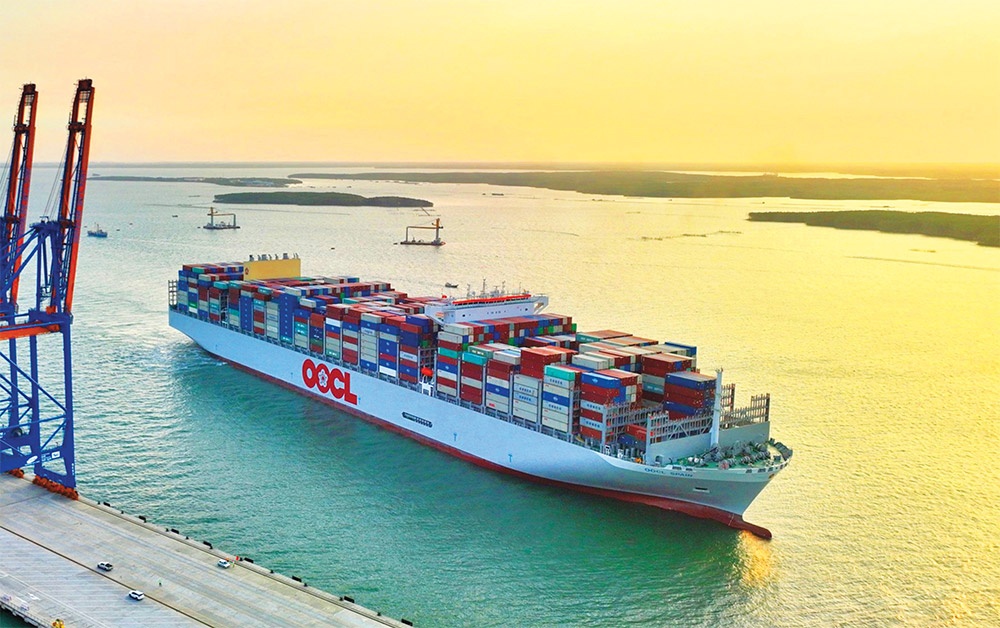 |
| Big firms seeing potential in logistics, Photo: Le Toan |
Company representative Priskoka Aleksandr told VIR, “This is our first intra-Asian service without calls to Russian ports. We already see a great demand for this service from customers: the first vessel from Malaysia to Vietnam arrived fully loaded, and left back with a 70 per cent load.”
To be closer to Vietnamese customers, FESCO established its own office in Ho Chi Minh City. The group also continues to work on launching new and developing existing logistics services here.
“Vietnam is one of the countries of key presence for us. Historically, the group has worked with Vietnam by transporting goods in one way or another, but in 2022, FESCO launched a direct sea service between the port of Vladivostok and the ports of Haiphong and Ho Chi Minh City,” Aleksandr added.
In addition to this route, FESCO carries out shipments of containers by sea via the Suez Canal with the FESCO Baltorient Line service from the ports of Vietnam to St. Petersburg.
The most commonly transported goods from Russia currently are sawn timber and other wood processing products, aluminium, building materials, polymeric materials, minerals, baby food, cosmetics, and chemicals. From Vietnam comes a wide range of food products, coffee, fruits and vegetables, and clothing.
Over the two years of operation of the Vietnam direct line, container traffic on the line increased by 2.4 times, Aleksandr said.
“The group transported more than 50,000 TEUs between Vietnamese ports and Vladivostok (from May 2022 to May 2024), which included not only cargo from Vietnam but also from other countries in Southeast Asia. Strengthening the partnership between Russia and Vietnam is a priority for us, and we plan to further increase this capacity and develop cargo transportation in this region,” he added.
Also in mid-August, Alibaba announced the collaboration with express shipping service providers UPS and DHL to launch an online logistics service for Vietnamese sellers. The move is part of Alibaba’s efforts to facilitate the export of Vietnamese sellers’ goods to more than 200 countries and territories worldwide.
The service has been designed to help businesses optimise time and costs by supporting not only fast international shipping options but also integrating the whole process from packaging and warehousing to delivery. Alibaba guarantees timely and safe delivery of goods with this service, which also offers comprehensive cargo insurance options, customs consulting services, and order tracking tools.
Vianne Wang, director of Global Supply Chain at Alibaba, said, “By leveraging advanced technologies and comprehensive solutions, Alibaba supports Vietnamese small- and medium-sized enterprises to enhance their competitiveness, ensure on-time delivery and respond quickly to market demand, thereby promoting their growth and success in the global market.”
US-based logistics unicorn Flexport has a plan to develop its sea and air freight services in Vietnam, offering integrated domestic logistics services for international brands and launching new products to enable clients to manage their supply chains more flexibly using real-time.
Sanne Manders, president of Flexport, said, “Many of our long-term clients have been making significant investments in Vietnam through increased sourcing from Vietnamese suppliers and establishing a local presence for logistics and supply chain operations. Flexport is capitalising on the global trend to diversify the supply chain sourcing and the positive macro trends in Vietnam, positioning ourselves to better serve our clients where they are going.”
Vietnam’s position as a key player in manufacturing and logistics hubs is set to solidify over the long term, with the country continuing to attract foreign logistics firms, Manders added.
“Forecasts suggest that the overall freight/logistics market is projected to exhibit a growth rate of 6.64 per cent between now and 2032. These positive indicators further enhance Vietnam’s standing as a hub for logistics operations in the region,” Manders said.
An industry report released by VinaCapital in June also revealed that exports to the US, Vietnam’s largest market, rebounded from a 21 per cent drop in the first quarter of 2023 to a 24 per cent surge in the first quarter of 2024. The sharp increase in exports boosted Vietnam’s air and sea cargo volumes by an estimated 40 per cent and 30 per cent on-year respectively in the first quarter of 2024. Vietnam’s export recovery is forecast to continue beyond 2024.
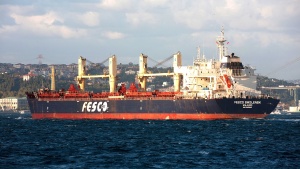 | FESCO to launch shipping line between Vietnam and Malaysia FESCO Transportation Group, one of the largest logistics companies in Russia, launched FESCO Intra Asia Service (FIAS) on August 15, a regular shipping line between Vietnam and Malaysia to expand foreign trade routes. |
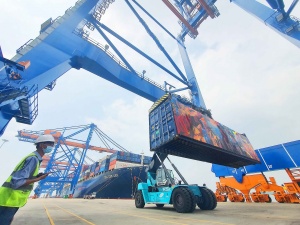 | Ba Ria-Vung Tau to become a global logistics hub The southern province of Ba Ria-Vung Tau has implemented solutions to modernise its seaports and logistics infrastructure, as well as improve its investment climate by streamlining its administrative procedures in the hope of attracting further investment. |
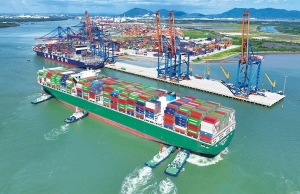 | Ports poised for more growth amid ferocious competition Marine transportation is currently navigating turbulent times. Patrick Lenain, senior associate at the Council on Economic Policies, notes how Vietnam’s ports are ready for progress amid the fierce competition. |
 | Logistics competiton: the story of globalisation and multilateralisation In the trend of strong globalisation, Vietnamese logistics businesses are in strong competition with foreign rivals. Le Duy Hiep, former chairman of the Vietnam Logistics Business Association, discussed with VIR’s Bich Thuy the story of these rivalries and future investment trends. |
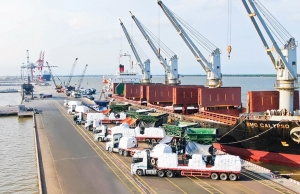 | Logistics groups branch out for gains Driving by growth results in the first half of 2024, Vietnamese logistics companies are transforming their business reach to maintain momentum. |
What the stars mean:
★ Poor ★ ★ Promising ★★★ Good ★★★★ Very good ★★★★★ Exceptional
Related Contents
Latest News
More News
- Kurz Vietnam expands Gia Lai factory (February 27, 2026 | 16:37)
- SK Innovation-led consortium wins $2.3 billion LNG project in Nghe An (February 25, 2026 | 07:56)
- THACO opens $70 million manufacturing complex in Danang (February 25, 2026 | 07:54)
- Phu Quoc International Airport expansion approved to meet rising demand (February 24, 2026 | 10:00)
- Bac Giang International Logistics Centre faces land clearance barrier (February 24, 2026 | 08:00)
- Bright prospects abound in European investment (February 19, 2026 | 20:27)
- Internal strengths attest to commitment to progress (February 19, 2026 | 20:13)
- Vietnam, New Zealand seek level-up in ties (February 19, 2026 | 18:06)
- Untapped potential in relations with Indonesia (February 19, 2026 | 17:56)
- German strengths match Vietnamese aspirations (February 19, 2026 | 17:40)

 Tag:
Tag:




















 Mobile Version
Mobile Version